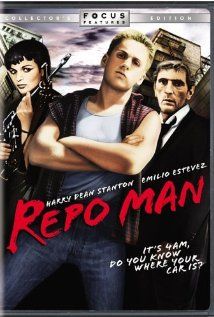Democrats pluck low-hanging car dealers
By Dave Roberts
For California’s Democratic legislators to take on used car salesmen is to grab the lowest of low-hanging fruit. The American people’s low opinion of the ethics and honesty of car salesmen is exceeded only by their contempt for members of Congress and lobbyists.
Forty-nine percent of respondents in the latest annual Gallup survey on honesty and ethics ranked car salesmen as low or very low in that regard. Only 7 percent ranked them high or very high. Fifty-seven percent rated Congressmen as ethically low/very low, while 61 percent pegged lobbyists as the sleaziest.
Three bills cracking down on used car dealers — particularly those that provide financing on the spot, known as “buy here, pay here” — are making their way through the Legislature. Like much liberal legislation, it likely will end up hurting the people it’s designed to help. But that apparently is not a concern for those like Sen. Ted Lieu, D-Torrance, who introduced SB 956 on the Senate floor on May 31, where it passed easily, 24-12.
“These dealers take advantage of our laws to prey on desperate workers, low-income families and our military service men and women,” said Lieu. “These dealers target people who need cars to get to work and manage the daily necessities of life, but cannot qualify for a conventional car loan. They lure these people in, but when the person cannot pay cash, they finance cars at interest rates of 30 percent and mark up aging cars by over 200 percent.”
Lieu told the Senate Judiciary Committee on April 24, “The customer typically has to come and pay in person each month at the dealership. And if they cannot, then the dealer will repossess the vehicle. This business model allows dealers to keep large down payments and cash installments and then resell the vehicle to other unsuspecting buyers.”
Complaints
Buy-here, pay-here used car lots “are one of the most prominent areas in which we receive complaints” on a consumer hotline, Joe Ridout, consumer services manager with Consumer Action, told the committee. Many car buyers complain about being overcharged, he said. A Los Angeles man paid $9,000 for a car with a blue book value of $2,455. Victor from San Francisco paid $18,000 for an $8,400 vehicle. Simone from San Jose paid $32,000 for a car worth $21,000.
“We also hear numerous complaints about interest rates that are deceptively presented to consumers,” said Ridout. “They wind up paying 24, 28, as high as 30 percent, we’ve heard, for used car financing with people with poor credit. We represent consumers that are low income, under-represented in terms of being limited English speaking or otherwise disadvantaged in the marketplace. We feel the interest rate cap is very important, so that these individuals can start building wealth and avoid being ripped off.”
The used car dealer horror stories continued with Rosemary Shahan, president of Consumers for Auto Reliability and Safety, who said, “For 30 years we’ve heard complaints about consumers who have been taken in by buy-here, pay-here car dealers. We believe that this targets some of the worst practices that occur in auto sales. It will benefit consumers in a number of ways.”
The bill limits the interest rate on buy-here, pay-here loans to no more than 17 percent plus the federal funds rate. Like the minimum wage, which kicks the least skilled off of the bottom of the employment ladder, imposing a maximum loan rate would likely eliminate the bigger credit risks from receiving any loan at all, according to opponents of SB 956. But Shahan believes that possibility is overblown.
‘Less risk’
“It’s important to keep in mind that although the industry says that the rates reflect the risk involved, there actually is a lot less risk for them than they often represent,” she said. “Because it’s a securitized loan; it’s secured by the car. And a lot of times consumers are paying a down payment that exceeds the value of the car. So even if the dealer doesn’t get a single payment, they still come out ahead.”
She touted the bill’s requirement that a dealer must wait at least 11 days after a missed payment before repossessing the vehicle. And she likes the provision allowing an extra 45 days to pay any late payment fees.
The bill will help borrowers avoid “the worst case scenario [wherein] they buy the car to get to work — and they end up with more debt, no car, worse credit and a repo that stays on their record for seven years,” said Shahan.
SB 956 was approved 7-2 by the Banking and Finance Committee on June 25.
Another anti-lemon bill is AB 1447, by Assemblyman Mike Feuer, D-Los Angeles, which was approved 49-25 in the Assembly on May 29. Like the other two bills, it’s spurred by a three-part investigative series on used car dealers in the Los Angeles Times last fall.
The bill requires a minimum warranty of 30 days or a thousand miles on all vehicles “so the car won’t break down as soon as it leaves the lot,” said Feuer. Another provision is “the customer needs to in writing consent to the GPS tracking and be apprised of the fact that the car could be turned off remotely but be warned by the system before that happens so the customer can be in a safe location. The legislation also requires that no longer can the seller require that a payment be made in person every time a payment is due.”
Also approved on May 29, but by a narrower 42-32 margin, was AB 1534 by Bob Wieckowski, D-Fremont. It requires buy-here, pay-here dealers to place a sticker on every vehicle listing its “reasonable market value.” That is defined as the average retail value based on the condition, mileage, year, make and model of the vehicle as determined within the last 60 days by a nationally recognized pricing guide.
Fighting back
Naturally, used car dealers are fighting back, arguing that the bills will hurt legitimate dealers, cash-strapped and credit-risky people needing their own transportation, the economy and sales tax revenue.
CarMax Auto Superstores released a statement that Wieckowski’s sticker plan would result in misinformation for the consumer: “As a vehicle sits on a dealer’s lot, it depreciates. Thus the ‘reasonable market value’ on the sticker will likely be superficially higher than the actual value of the vehicle.”
The National Independent Automobile Dealers Association opposes SB 956, stating, “Limiting interest rates buy-here, pay-here lenders can charge … will cause those who provide this highly specialized financial service to deep sub-prime auto buyers to discontinue in the line of businesses, which will in turn cause a dramatic decrease in sales tax revenues for the state, county and municipal budgets.” Sales tax revenue could drop $234-$337 million in California, according to the association.
An ad hoc group of used car dealers, chambers of commerce and auto associations, calling itself The Coalition to Protect our Freedom to Drive, has formed to fight the legislation. (New car dealers have chosen to sit out this fight, according to the Los Angeles Times).
Attack on freedom
The legislation “will negatively impact the freedom of all citizens to access vehicles by damaging the only businesses that lend to low-income, blue collar, seasonal workers and credit-challenged Californians,” the group states on its website. “Our Coalition believes that all Californians should have access to the credit they need from private businesses willing to lend to them — this freedom should not be reserved exclusively for the most affluent.”
It predicts that the legislation will result in a 50-90 percent decrease in sales at California’s more than 7,000 car dealerships that cater to low-income, high credit-risk consumers. There are more than 9,000 used car dealers overall in the state. Used car sales totaled more than $5 billion last year, generating nearly $468 million in sales tax, according to the Board of Equalization.
“These three bills are a knee-jerk reaction to sensationalized LA Times articles that were unfounded and biased about the buy-here, pay-here industry,” the coalition states. “Limiting access buy-here, pay-here consumers have to alternative credit sources will force them to meet their transportation needs through unlicensed private party sellers or curb stoners who have little or no interest in consumer protection, vehicle safety, title and registration reporting or paying necessary sales tax and fees. Reducing options will make it more difficult for people with less-than-perfect credit to get to their jobs, schools and doctor’s appointments.”
And, the coalition adds, the legislation can hurt residents in the three out of five California cities that rely “on sales taxes for their already depleted general fund budgets to pay for public safety services such as police and fire protection.”
The coalition is asking that the bills be tabled until a study can be conducted on the impacts of the legislation on dealers, consumers and state and local governments. The study could take one-to-three years. It remains to be seen whether the bills’ authors will view this as a legitimate option worth pursuing, or just a delaying tactic. Smart money is on the latter.
Related Articles
UCLA Study: 35% water reduction order in Palm Springs may backfire
Gov. Jerry Brown’s recently announced Executive Order B-29-15, mandating statewide water use reductions will hit the Palm Springs area of
Court Dishes Overdue Justice to CARB
MARCH 23, 2011 In the matters of public relations and legislative maneuvering, Mary Nichols is a very smart woman. She
Dem strategist (albeit a paid one) rips Nanny State push
A classic Nanny State bill failed in committee Tuesday within hours after a leading Democratic strategist warned California lawmakers that





